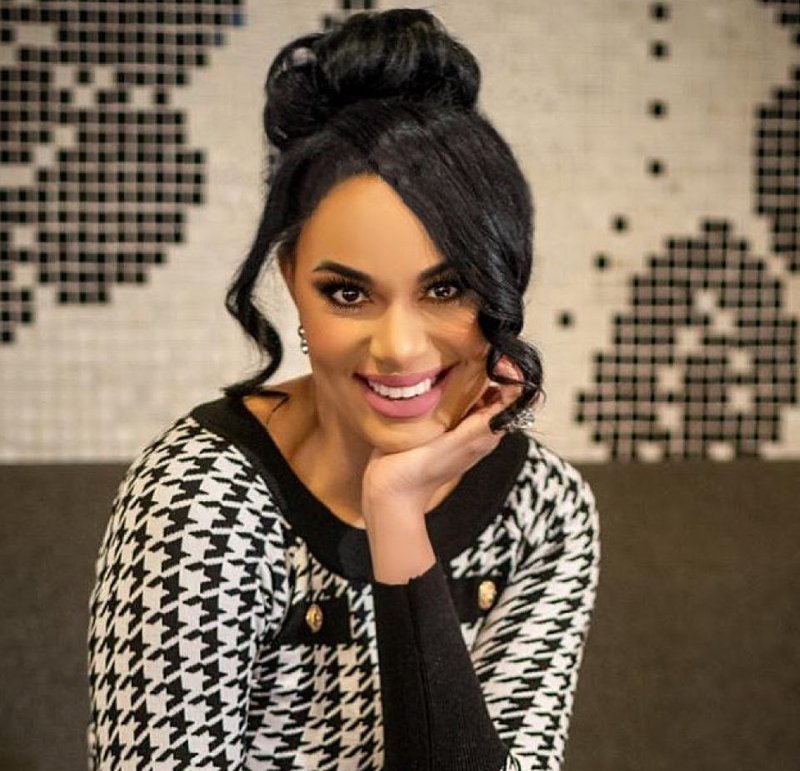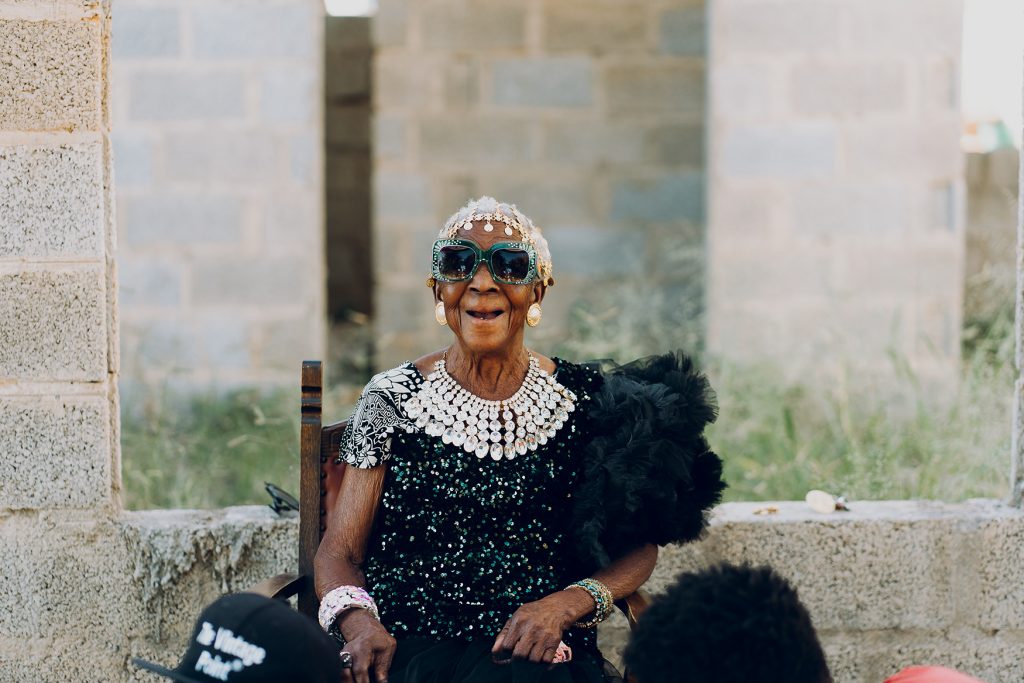Cartier Lebatie discovered the power of social media when she was crowned Miss Earth Zambia in 2014. Today the Zambian-South African is a lawyer, digital marketer and founder of C-Suite Legal and Marketing. Like many African family’s conventional career paths are preferred so it was hardly surprising when she chose to study law and was supported by her family. But when she competed in Miss Earth her eyes were open to new possibilities.
She shares, “I went to compete in the Philippines. When I went to the Philippines, you’re obviously competing on an international level, and you’re competing with several other countries that at the time were more digitally advanced than that of both Zambia and South Africa. There were certain parts of the competition, which required your audience to be able to vote via your social media platforms. It was through that that I really learned how digital presence can have a direct effect on your business or professional and personal life.”

Zambian-South African lawyer and digital marketer Cartier Lebatie is the founder of C-Suite Legal and Marketing. She had an idyllic childhood and grew up in a warm and loving family. Like many African family’s conventional career paths are preferred so it was hardly surprising when she chose to study law and was supported by her family.
In 2014 Cartier was crowned Miss Earth Zambia and that is when she discovered the power of social media. Cartier shares, “when I graduated with my legal degree, I knew the legal fraternity is very stagnant. The laws can’t change every five minutes and it’s a long process to be able to change legislation.” Thus began her foray in digital marketing and building a personal brand, Cartier explains, “I really wanted to be in an environment where I was able to, I want to have a career path rather where I was able to impact someone’s life directly, but I also wanted to enjoy what I was doing. The legal degree gave me something to fall back on.”
“I started my business when people were cutting marketing budgets and being retrenched and it’s so scary to now start this new business in the middle of the scenario.”
The pandemic is what changed things around and brought together law and digital marketing to help Cartier launch her business C-Suite Legal and Marketing. She explains, “I was working for corporate, I worked as legal counsel and when COVI-19 hit, I didn’t want to be in a position where my company was going under. I realized that my salary, income, my livelihood, was based on someone else and that I didn’t have control over it. I made the decision to start my own legal advisory firm and marry the two worlds of legal and social media and form a legal advisory firm that specializes in digital marketing and social media.”
Starting a business during a pandemic is no easy feat but is a trend we have seen the world over. Cartier explains, “I started my business when people were cutting marketing budgets and being retrenched and it’s so scary to now start this new business in the middle of a pandemic. However, what I found is that while people were cutting marketing budgets, you’d have big corporations that would have significant marketing budgets. They’ve now cut that budget in half because they no longer can afford printing and television and radio advertisements, and that’s where my business came in, because you are getting the marketing aspects and everything else except it’s costing you less. It’s online and it’s hitting your target audience during COVID because people are home on their devices.”

Digital marketing is fast becoming the more affordable and preferred way to reach customers immediately. “It’s actually been found that especially for small businesses, they are no longer judged on the quality of the product or service that comes secondary. They’re judged on their social media visibility, firstly what is your social media look like aesthetically? How many followers do you have? How consistent are you with your posting? Who is your target audience? That is what is used to judge a product or service before you see the quality of what you’re getting. That is the power of social media in a pandemic!”
C-suite Legal and Marketing is an advisory firm, Cartier explains what that means, “there’s two aspects of the business, from the legal side, we handle everything on a corporate level, from the drafting of your contracts to employment agreements, to handling legalities, for example if you have a legal problem and require advice on it. Right now, in South Africa, we have the new legislation that has come into play called the Protection of Personal Information Act (POPI) and with that, we need to make sure that every client is POPI compliant, when it comes to how they handle their client’s personal information. Everything from, what are they doing with the personal information that they’re receiving? From that aspect, we handle your business’s legalities in terms of just making sure that legally you are compliant. The other aspect, which is the digital marketing and social media aspect, we help build brands from the ground up. This includes everything from developing a digital marketing and social media strategy for your business. We look at everything from firstly, what is your business? Who is your target audience? What platforms do you want to be visible on? How consistently can you maintain these platforms? And most importantly for me is what is your financial budget restrictions when it comes to the marketing and the social media aspect? And we take all those elements into account, and we build your brand we give you a brand voice.”
“You know, when you have a corporate job, you work 9 to 5 but when you have your own business, you work 24 hours a day!”
when it comes to digital law Cartier reveals, “In South Africa and Zambia, we don’t have actual digital legislation that has been enacted. We’ve seen an increase in cyber-crimes in the past two, three years. We’ve seen an increase in social media harassment, social media criminal activity, and we don’t have adequate legislation to protect businesses, individuals, in both personal and professional aspects. From a legal standpoint, because we don’t have specific digital legislation, when you are interacting on these social media platforms in your personal or professional capacity, or even as a business you need to be careful. You need to make sure that firstly, you are contracted in the correct way. As an example, if a brand is working with an influencer, we do not work on trust. The needs to be no matter how big or small the collaboration is or the specific job, you need to make sure that contractually, you are covered on the brand side and the influencer or individual is covered on their side. The second thing is when you work on social media, you don’t want to disclose private and personal information about yourself ever. You need to treat it as something where if you don’t want it’s to get out and you want nobody to see it, then it cannot have any place on a digital platform. Even if you think that it is a private conversation between individuals that can still go out into the world. An example would be the social media platform WhatsApp, a lot of people think that the information between two individuals is private. However, seen crimes increase purely on the WhatsApp platform. Even in your WhatsApp groups, there’s just information that if you are not comfortable with the world seeing it then do not put it out there, plain, and simple.”
With Cartier’s personal experience as a Fashion Model working with big name brands like Coca-Cola, Dolce & Gabbana and Zara I was curious to know how she positioned herself strategically to get recognized by them. She explained, “When I work, I work very strategically, you know, as much as we would love to believe that one day Coca-Cola is going to find us on Instagram, you’re competing with over a billion accounts. When I approach a brand, and I’ve been very fortunate to work with some phenomenal brands, I made sure that I have a digital profile and a rate card and that I have a strategy. The strategy must include things like, this is what I want to do with the brand, this is how I’m going to benefit you, this is my target audience, and this is what you can expect after I have collaborated. When you pitch yourself, you need to make sure that your pitch is flawless and of course it comes with practice. The next thing I do is that I make sure that I know what works with my brand that I have built and my audience. I think being authentic, having consistency and then having an organic synergy between you in the brand will elevate any partnership.”

When it comes to her favourite social media platforms when doing business for her clients, Cartier shares, “I think from a social media aspect, and the brands that have benefited our clients, the top platforms are Instagram, Facebook, Twitter, and YouTube! I see that Tik Tok is also very popular, it’s obviously very big with younger generations. I think for me, my favorite tool will always be Instagram. I also benefit greatly from using apps to make my job easier, so you know, for instance, I love Canva it’s amazing. That helps with my marketing strategies, it creates my templates for me, I’m obsessed with Canva. And you can literally make anything, you can build a brand from scratch purely with that app. Another app that I love is my scheduling app, it’s called Planoly that helps with my calendar scheduling. The app allows you to put a bunch of the content that you’ve created and play around with the sequence in terms of how it’s going look once it has been posted on the same platform. Those are my top two apps that make my job so much easier.”
As for the big trends in Digital for 2022 Cartier passionately shares, “one big digital trend right now for people who are more experienced in the digital world, the big trend right now is NFT’s or your non-fungible tokens. Basically, an NFT is a unit of data and it’s stored on a digital ledger that we call the blockchain. What makes it so phenomenal is that a secure digital file is used to validate ownership within the blockchain. So, when we speak about NFT’s right now, a big trend that’s been going on is an NFT is very similar to cryptocurrency. The only difference is no one can steal an NFT from you. In South Africa, they’re using NFT’s to sell art, you’re selling the art and it has a unique code in it and because it’s on a digital platform it removes the use of the gallery. Thus, the artist is saving costs on a gallery expense, for example let’s say I buy art using an NFT and it can be an actual physical art piece just with a digital code or it will just have the NFT code attached to it. When I buy art from an artist, it’s mine and no one else can own it, it’s unique to me. If I then sell it to you with that NFT, that sale will allow the artist to still make a small profit on that sale. Much like the way music royalties work, so every time the art is sold an artist makes a profit which is unheard of in the art world because an artist only ever earns from the first sale. So right now, the big trend is NFT’s and we are trying to incorporate the use of NFT’s into C-Suite Legal.”
When she isn’t passionately breaking down NFT’s or talking brand and influencer contracts one wonders what Cartier does in her spare time. She jokes, “You know, when you have a corporate job, you work 9 to 5 but when you have your own business, you work 24 hours a day! When I do have down-time I love to spend time with my husband and my family. My husband is my best friend! Outside of that I take my health very seriously, so physical fitness is a big thing to me. Whether it’s going to the gym or doing yoga, and then honestly in front of the TV with a good series is where you can often find me.”








